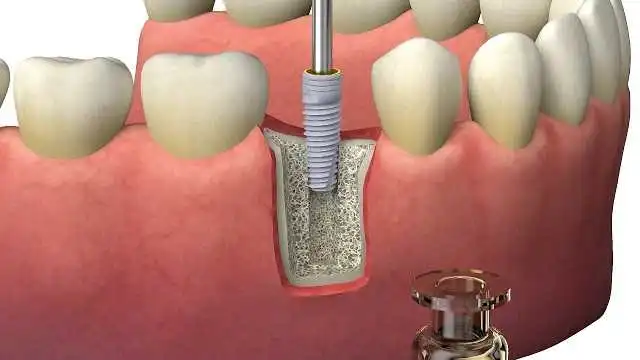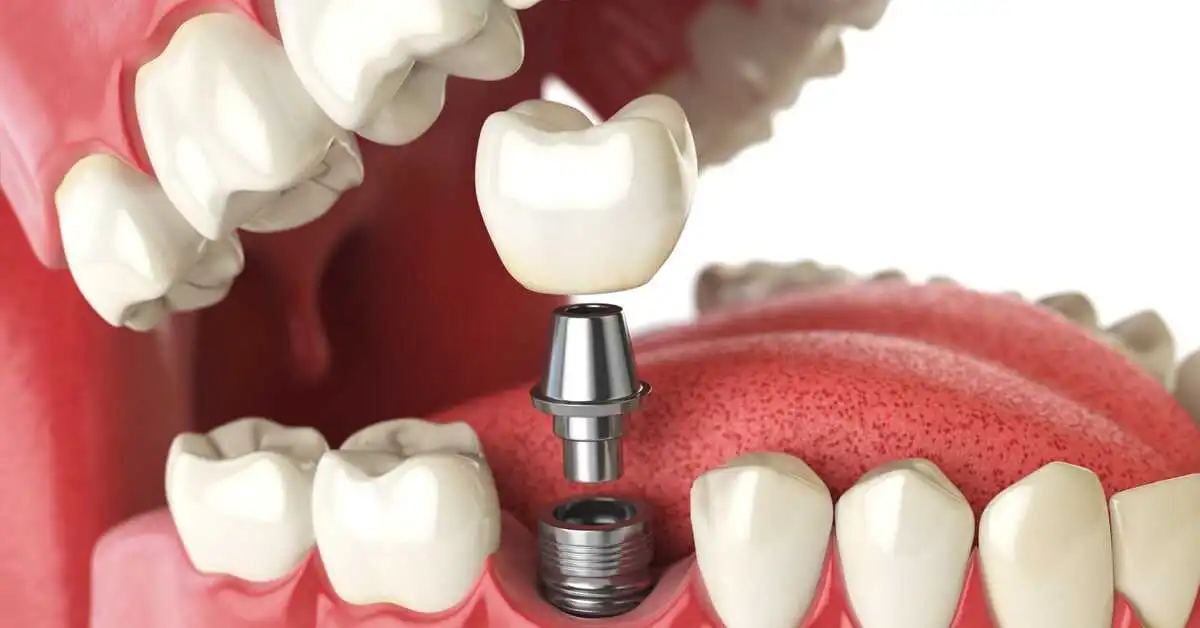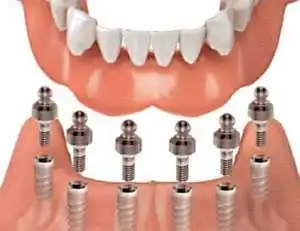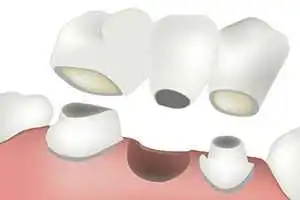THE FIRST STAGE OF DENTAL IMPLANT IN IRAN
THE SECOND STAGE OF DENTAL IMPLANT IN IRAN
Iran has been the destination for dental implants for so many years and the numbers of patients who are visiting Iran still growing. The biggest reason lies in the high quality dental services the country offers to the patients. As well as the very low cost of their treatment
.
ALL INCLUSIVE DENTAL IMPLANT PACKAGES IN IRAN

The First Stage of Dental Implant Package
First Stage of Dental Implant US
$429
1st Stage of Dental Implant +3Stars Hotel (6nights) $699
1st Stage of Dental Implant +4Stars Hotel (6nights) $579
1st Stage of Dental Implant +5Stars Hotel (6nights) $789
Book Now

The second Stage of Dental Implant Package
2nd Stage of Dental Implant US $249
2nd Stage of Dental Implant +3Stars Hotel (6nights) $399
2nd Stage of Dental Implant +4Stars Hotel (6nights) $519
2nd Stage of Dental Implant +5Stars Hotel (6nights) $599
Book Now
What We Offer
Hair Transplant Procedure
Clinic and doctor visits, medical tests, hair transplant procedure in clinic, , post-operative care, medicines*, recovery, and follow-up
T-Visa Authorization Code
T-visa authorization code. (Note that there is a separate visa fee that
the patient must pay when receiving the visa, which it is not part of
this package).
Pick-up & Transfer
Airport pick-up, private transfer from hotel to clinic/hospital and vice versa
Accommodations
6 nights stay in a three-star to five-star hotel offered which is preferably near the clinic or hospital
Other Services
24-hour on-call assistance, interpreter, SIM card and internet
Note: The medicines and other aftercare items included in this package are the necessary items prescribed by the surgeon.
Also, the doctors and hotels and clinics which are included in the
package are offered by Ariana Medicare Tour Services to the patient. There may be other
doctors whom the patients are considered and the price might be
different. Based on a new policy of the Ministry of Foreign Affairs, the
citizens of the USA, UK, and Canada are included in different logistic
services.
What are Dental Implant?
Dental implant surgery is a procedure that replaces tooth roots with metal, screwlike posts and replaces damaged or missing teeth with artificial teeth that look and function much like real ones.A dental implant consists of three parts. These are crown, abutment, and screw.Crown is the top part of an implant which looks like your natural tooth. Abutment functions as a connector, attaching the crown to the screw. Screw functions as the root of your tooth, stabilizing the crown into the jawbone. Dental implant surgery can offer a welcome alternative to dentures or bridgework that doesn't fit well and can offer an option when a lack of natural teeth roots don't allow building denture or bridgework tooth replacements.
What is a dental implant procedure?
Dental implantation is an outpatient surgery. The implant is made of titanium and other materials that combine with your jawbone to mimic tooth roots. This artificial root allows the dentist to strengthen your replacement teeth so that they feel stable and blend in with the teeth around you.It takes about 2 to 4 weeks for the screw to fit in the jaw. The crown is placed on the screw after about 3 months. These two steps may be done simultaneously or in different sessions depending on the condition of your jaw. Accordingly, some patients may have their screw implants performed only in Iran, while crown implants are performed in their own country.In addition, if your jawbone is not large enough to receive or hold an implant, you may need bone graft surgery before implantation. If you are having bone graft surgery, it may take several months for your jawbone to heal.
Getting dental implants requires several appointments. This includes a consultation, an appointment to place the implant, and another to attach the new teeth.
Contraindications
Growing children may not be able to have dental implants until their jaws are fully developed.
People with chronic conditions such as diabetes or leukemia may also not be good candidates for dental implants. This is because these conditions can interfere with recovery after surgery.
If you smoke, your dentist may not recommend surgery because smoking can slow down the healing process. Talk to your dentist about your medical history and lifestyle habits to make sure you are a good candidate for this procedure.
Dental Implants Clinics in Iran
Dental implant clinics, in Iran offer a full compas of implant procedures.
The country enjoys a society of highly-experienced and trained dentists They have met all the international standards, and are equipped with advanced facilities. The chance of having a successful implant surgery depends on the experience of the dentist as this procedure is as much about art and experience as it is about science. Accordingly, choosing a country like Iran where with highly experienced dentists would help you get through this procedure with much satisfaction.
Dental Implants recovery after surgery in Iran
Recovery time, fully depends on the dental implant surgery.
For most people, recovery time is only 1-2 days.
However, if you have more than one implant procedure completed, or if you need bone grafts, recovery time can take longer.
If the latter is the case, most recovery times are around 1-2 weeks.
However,Full healing time is around 4-6 months after the surgery.
After that, you will come back for an exam. During this exam, Iranian Dentist will attach the abutment and then add the crown.
This is all a same-day treatment.
Types of Dental Implants used in Iran
The two main materials used for dental implants are titanium and zirconia. However, they represent a few drawbacks including the risk of being rejected by the patient’s immune system, complications with MRI, cellular sensitization and allergy.T
here is an extensive amount of research and testing that goes into developing new implant materials including the chemical and physical properties. In light of this, Iranian dentists/surgeons offer both Zirconia and titanium implants according to the patient’s condition and preference.
Can Dental Implants be removed?
Yes,
there is a three reasons it may be necessary to remove a dental implant from a patient's mouth
To change the position:
- When it is no longer in its proper alignment. It is essential for every tooth to be properly aligned, as this allows for a proper bite. This type of procedure is also called revision implant surgery, as it corrects the position of an implant that is out of alignment.
Early Implant failure:
- When the implant did not properly attach to the jawbone. This can be due to some type of infection or because the patient’s body rejected the implant, a.k.a. host rejection. When a patient experiences early implant failure, it tends to occur within the first two to three months after placement. It can be difficult for a dental professional to know until after the implant has been removed whether the early failure is due to an infection or if the implant simply did not fully integrate with the jawbone.
Late Implant failure:
- the implant is failing even though it has been in a patient's mouth for more than a year. Like early implant failure, late implant failure can also be due to a mouth infection or because the implant did not fully attach to the jawbone. A second additional reason is that there is too much force being placed on the implant, which causes it to become so loose that it may need to be completely removed from the mouth.
Who are candidates for Dental Implants?
If you have missing teeth, or have broken or decayed teeth that might be beyond repair, implants are usually the answer. If you’re uncomfortable with your dentures, partial denture, or bridge, you could benefit from implant technology.
Benefits and advantages of Dental Implants
Dental implants include a number of advantages over other alternatives
. These are:
Behave like natural teeth:
- Most of the patients can’t tell the difference between their natural teeth and the implant tooth. They can eat with it completely normally, and they can brush and floss normally as well
Can last a lifetime:
-
Whereas a dental bridge may only last around 10 years or so, dental implants can last a lifetime. The implant is made from titanium and integrates with the jawbone. All in all it makes a powerful replacement tooth.
Stop bone loss:
- The jaw bone in the empty space and without teeth deteriorates due to lack of stimulation. If no implant is placed in the first year of losing a tooth, that bone area loses bone loss continues over the years.
Before Bone Loss
The dental Implants, keep adjacent teeth stable
- The missing tooth can cause adjacent teeth to crookedly shift towards the gap. This pulls your teeth out of position and can affect your eating , your appearance. Therefore dental implant can solve all your problem
After Bone Loss:
Firmness:
- Dental implants are usually considered being more firm than natural teeth and wholly functional.
Better function:
- Implants function at peak performance compared to your natural teeth as they can’t develop cavities. Plus, they will not affect neighboring healthy teeth or lead to bone loss in the jaw.
Prevent facial sagging and premature aging
- Facial sagging can be an unwanted effect of bone loss resulting from missing teeth. This is where the lower third of the face starts to collapse, gradually closing the distance between the tip of the nose and the chin. Changes can include excess wrinkles around the mouth, thinning lips and a more pointed chin, making the person look a lot older than his or her true age.
When the tooth roots are left un-replaced, as with regular dentures, the face can begin to sag as bone mass deteriorates. Dental implants can prevent this from occurring.
Dental Implants vs. Dentures
Stable teeth with good chewing power!
Dental implants provide a far superior experience compared to dentures. Even dentures that originally fit the patient well begin to slip and become uncomfortable after a while, due to increasing bone loss.It’s difficult to keep any denture continually stable due to wear on the bony ridges that dentures clasp onto. The most frustrating aspect of dentures, and the unhealthiest, is their poor chewing ability. many have to limit their diets because they are unable to chew certain foods with their dentures.If you are deciding between traditional dentures or an implant-supported restoration, here are some things to consider
.

Implant-supported dentures provide far greater stability and chewing power than conventional dentures.
-
Dentures often have to be kept in the mouth by using a dental adhesive. This sometimes requires re-glues after meals. An implant-supported denture requires no adhesive.
-
Dentures have to be removed for cleaning. With the exception of a removable implant-retained denture, your implant-supported restoration can be cared for by brushing and flossing.
-
Dentures cover the roof of the mouth. With implants, there’s nothing covering the roof of your mouth to interfere with your sense of taste or other normal activities. Implant-supported dentures can also be fabricated without a palate.
-
Dentures can slip out while eating or speaking. Implants and implant-supported dentures are securely anchored and won’t slip out. It’s hard to chew with dentures and you can’t eat a lot of food you like or need.
-
Dentures can move while you chew, which is annoying, and also makes it difficult to chew! In fact, dentures generally have only 10% or less of full chewing power. Dental implants have full chewing power and implant-supported bridges or dentures also considerably increase the chewing power.
-
Dentures may click while eating. With implants or implant-supported dentures, there’s no annoying clicking sound.
- Dentures don’t provide the stimulation needed to prevent bone loss.The jawbone needs to have the stimulation of high-pressure chewing to keep its volume. Implants ensure no jaw bone is lost.
-
Progressive bone loss as a result of wearing dentures can cause facial collapse. Over the years bone loss can cause the collapse of the lower third of your face, creating excessive wrinkles, sagging skin and jowls, thinning lips and a sunken-in look. This can considerably age a person’s appearance. Implants prevent bone loss.
Dental Implants vs. Dental bridges
A Dental Implant is a more affordable and natural replacement than a Dental Bridge.
A bridge consists of a false tooth (or teeth) supported by adjacent teeth that have been capped. It is used to replace one or two missing teeth.A bridge requires two often healthy teeth to be altered, which is not an ideal way of replacing a missing tooth compared to a dental implant. Bridges tend to have short lives, five to ten years, compared to a dental implant, which can last a lifetime. So while a bridge can sometimes be more economical at first, in the long run a dental implant can cost you less.

A bridge requires the alteration of adjacent teeth to support the bridge.
To inquire about the customized package, kindly contact us via email, WhatsApp, Instagram. The above packages are customizable to fit different budgets. In addition, the packages for other cosmetics or medical procedures will be arranged immediately upon request .
WhatsApp
Contact Us